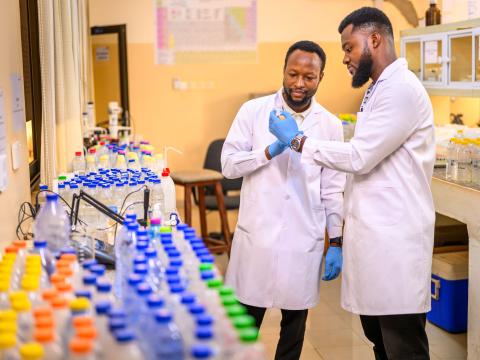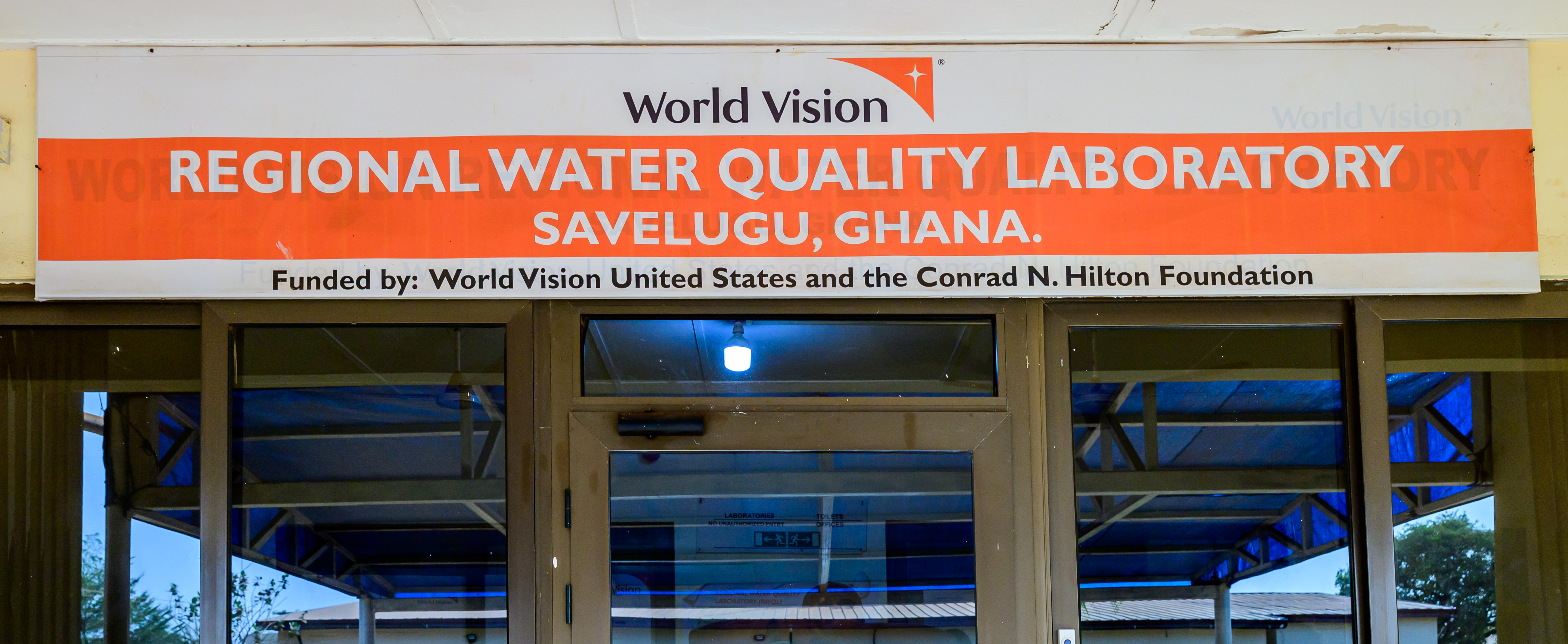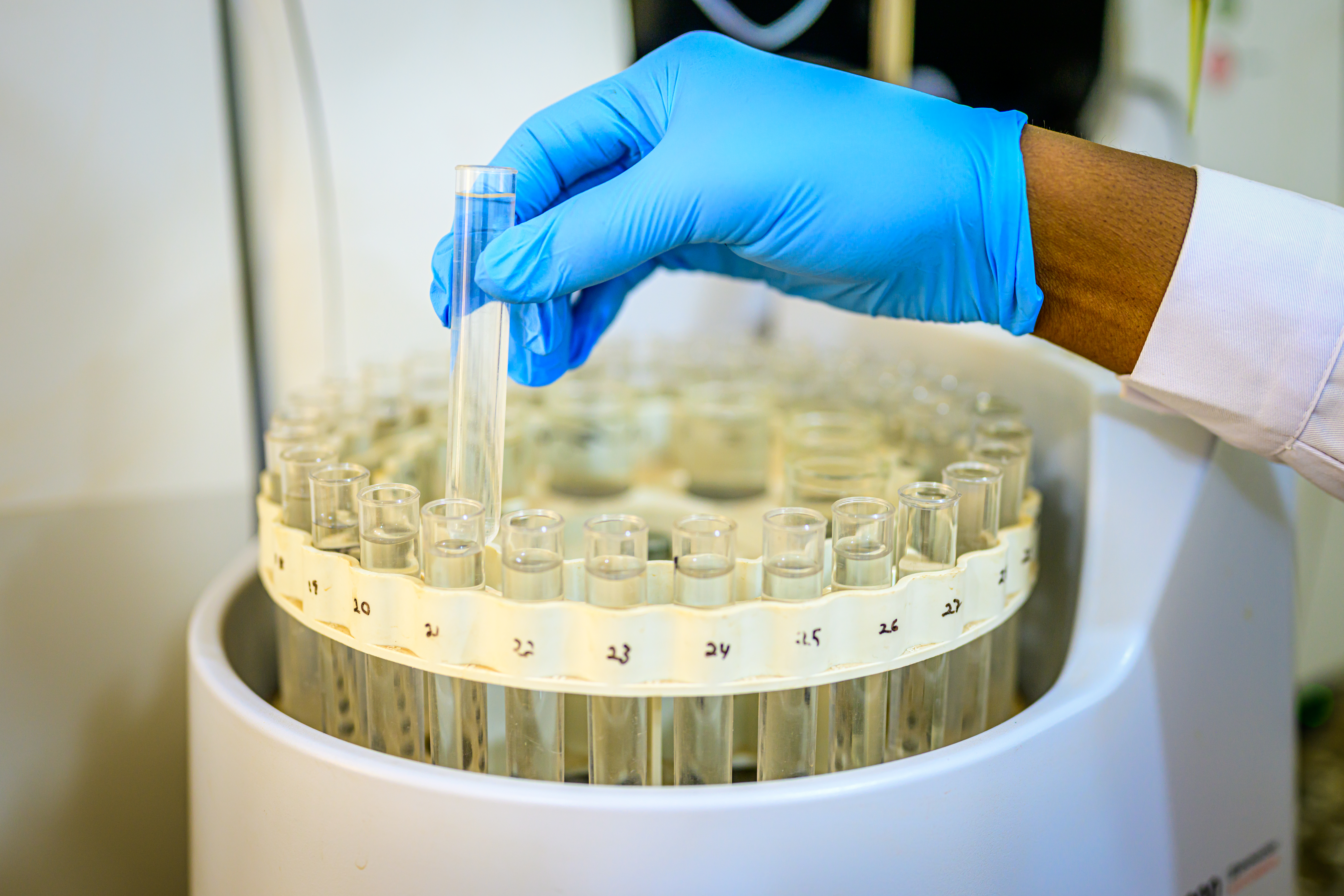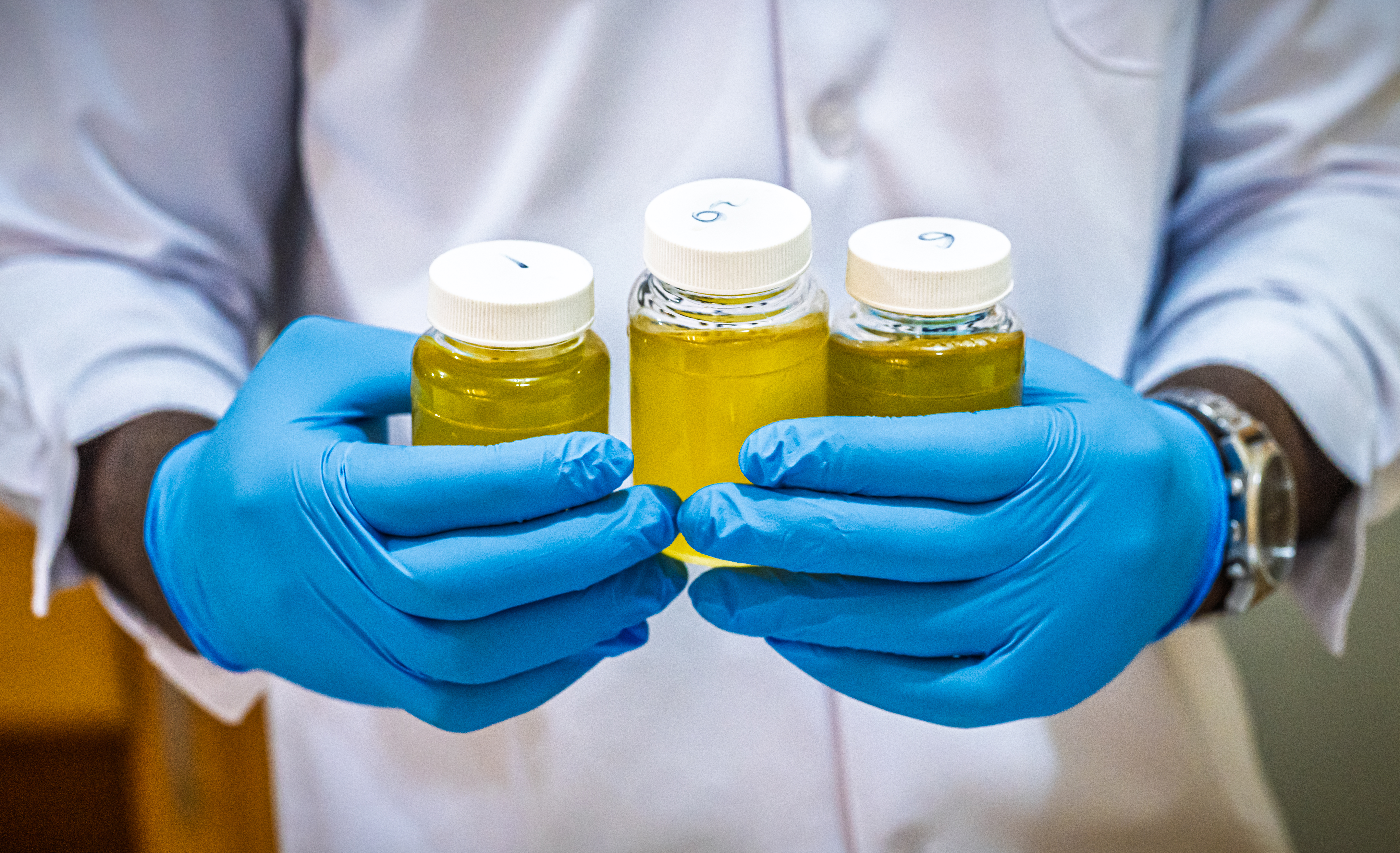World Vision Regional Water Quality Laboratory Earns Global Accreditation


In a groundbreaking milestone for water quality and public health, the World Vision Regional Water Quality Laboratory (RWQL) located in Savelugu in northern Ghana, has received an international accreditation from the Canadian Association for Laboratory Accreditation (CALA). This accreditation recognises the laboratory's adherence to global standards of competence and reliability.
This recognition positioned the RWQL as a centre of excellence, affirming its technical competence, impartiality, and consistent accuracy in testing drinking water for physicochemical, trace metal, and microbiological contaminants.
This marks a defining moment in World Vision International’s mission to ensure that every community it serves has access not only to water but also to water that is proven clean and safe.
“This accreditation is not just a certificate, it’s a promise to the millions we serve,” said Robel L. Wamisho, Program Associate Director for WASH at World Vision International. “It means a mother in a remote village can now trust that the water she gives her child meets the same safety standards as in major cities around the world.”
Driving Water Quality Excellence across West Africa
Since its establishment in 2011, with the support of World Vision U.S. and the Conrad N. Hilton Foundation, the RWQL has tested water samples from over 6,000 water wells across World Vision’s West Africa region (WV-WAR), including in Ghana. Through this work, the laboratory has helped provide safe drinking water to 3 million people, directly improving public health, nutrition, and overall well-being.
Empowering Systems and Building Capacity

Beyond testing and analysis, the Regional Water Quality Laboratory plays a pivotal role in strengthening systems and empowering people to safeguard water quality. Over the past decade, the lab has trained and equipped more than 650 professionals, including Water, Sanitation and Hygiene (WASH) Leads, Metropolitan, Municipal and District Assemblies (MMDAs), Water and Sanitation Management Teams (WSMTs), and other development partners in water quality monitoring, assessment, and management.
Through these capacity-building initiatives, the RWQL is nurturing local expertise and institutional resilience, ensuring that communities can independently manage water safety, identify risks, and respond effectively to contamination threats. These efforts directly support the realisation of Sustainable Development Goal (SDG) 6: Clean Water and Sanitation for all and reinforce the sustainability of WASH interventions across the region.
Advancing Research, Innovation, and Learning
The lab has established itself as a regional hub for research, innovation and applied science in water quality management. It has conducted baseline water quality studies across multiple districts and communities within World Vision's operational areas in Ghana, piloted new water treatment technologies such as Pro-Cleanse, SE200 chlorinators, Aquatabs inline chlorinators, and contributed to peer-reviewed scientific publications and WASH conference presentations.
By integrating innovation with field-based evidence, the laboratory continues to develop practical solutions to rural and urban water challenges, ensuring the sustainability and resilience of WASH systems and public confidence in them.

Beyond testing – A Symbol of Hope
From its modern facility in Savelugu, the World Vision Regional Water Quality Laboratory stands as both a scientific institution and a symbol of hope. Its international accreditation marks not the end, but a new beginning: a renewed commitment to science-based service delivery that saves lives.
“Our mission is simple; every person deserves water that’s not just available, but unquestionably clean,” said Elvis Kichana, Regional Water Quality and Laboratory Manager. “This accreditation is a testament to our dedication, teamwork, and faith in the power of science to transform lives.”
A Regional Legacy for Sustainable Water Quality
With its global accreditation, the RWQL has joined the ranks of internationally recognised laboratories that supports safe water supply, evidence-based policy, and sustainable development across Ghana, Niger, Mali, Chad, Mauritania, Senegal, Sierra Leone, and other West African countries.
It is not merely a laboratory but a beacon of trust, excellence, and transformation, proving that clean and safe water is possible for every community when science, partnerships, and compassion come together.